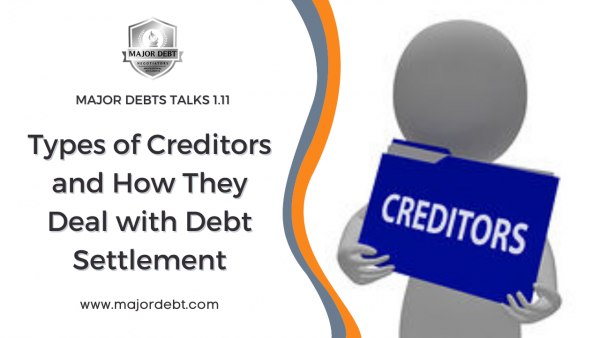They say you have to spend money to make some money. And for businesses or even individuals looking to bump their finances, running to a creditor for a loan might be enticing. But before you proceed with actually borrowing money, it is essential that you first understand the different types of creditors and how they deal with debt settlement. You know, just in case something unexpected happens, and you're unable to pay what you owe.
What is a creditor?
A creditor is an entity (a person, institution, organization, or even a government) that lends money to another entity (debtors). They are able to do this by extending credit that permits the latter to borrow money (debt). The borrowed money is then agreed to be paid in a certain amount of time with interest, depending on what is stated in the contract.
Creditors typically enforce a contract to make sure that debtors pay what they owe on time. If debtors fail to do so, charges or late fees are incurred as a form of consequence. In another picture, debt settlement might also be imposed. When this happens, debtors are prompted to negotiate with creditors on how they plan to pay their debt.
Now, there are different types of creditors. A variety of them comes into play depending on what kind of entity borrows money. And they deal with debt settlement quite differently from one another.
Types of creditor
Secured creditor
This is the more rigid type of creditor. As mandated by law, they have the right to claim and sell a debtor’s property if the latter fails to proceed with their debt payment on the agreed date. Basically, they have a lien against some of the borrower's properties that might equate to the value of money owed. Hence, they are referred to as secured creditors - they secure debt payments in the form of collaterals.
Typical, secured creditors put a lien against a house or a car if the debtor is a person. If debtors are companies (some of which might be on the brink of bankruptcy), secured creditors will opt to put a lien on company properties such as factory warehouses or products that the company sells or any real estate it owns.
So, in general, secured creditors are often referred to as "asset-based lenders." If a business becomes insolvent (unable to pay its debt), its business assets (usually indicated in the debt contract) might be claimed by secured creditors as a form of debt payment or debt settlement.
Examples of secured creditors
Financial institutions such as banks or mortgage lenders are the most typical example of secured creditors. They hold a fixed charge on a personal property if the debtor is a person or on some business assets if the debtor is a company.
Unsecured creditor
Contrary to the former, unsecured creditors are less rigid. This is because they do not hold any lien (in the form of collateral) over their debtors. They have no legal rights on the property of a person or an entity (usually an individual or just a small business) that owes them money. This is why compared to secured creditors, unsecured creditors are generally at a disadvantage if debtors default on their payments.
From the perspective of a debtor, this might be a good thing. But this does not mean that they are less strict with payments. Like any other lenders, they also enforce a contract on debt payment. And since they have no legal claims of properties or any collateral in the event of a debtor bankruptcy, negotiators are often hired as a middle man for the debt settlement.
This is where Major Debt Negotiator come into play. We settle unsecured debts, not secured by tangible assets like homes or autos. Some of the debts we cater to for settlements are unsecured consumer debt, credit card debt, store credit, payday loans, standard unsecured bank loans.
Each settlement acquired by the creditor is uniquely achieved as each creditor handles delinquent accounts differently. If you connect with us to negotiate your debt settlement with unsecured creditors, our first goal is to pause any upcoming ACH transactions and examine the account details to provide you with a plan that best works for your unique situation.
Examples of unsecured creditors
Unsecured creditors are the most significant number of lenders to be paid. But on the topic of insolvency, they rank after secured creditors. Some examples of unsecured creditors include contractors, suppliers, customers, providers of unsecured loans such as payday loans, and credit card companies, and landlords for rent arrears.
Conclusion
Different types of creditors deal with debt settlement in varying degrees. The defining factor for secured and unsecured creditors is how one has legal claims on a debtor's property in the event of insolvency (or bankruptcy) and how the other does not.
Major Debt Negotiator mainly provides services of debt settlement with unsecured creditors. We provide financial relief and credit assessment. Our proven program will help you save money while paying debt faster than making minimum payments. Our goal is to not just provide debt relief services but also provide financial consultation and education to make sure our clients who enroll in our program will continue to live a debt-free life.
As a result of debt relief assistance and past due accounts, your credit may have been affected. As a separate service, once your debt relief program has been fulfilled, our credit repair specialist will gladly go over your credit report and provide the help needed to remove the negative marks from your report.
Connect with us now to know more.

